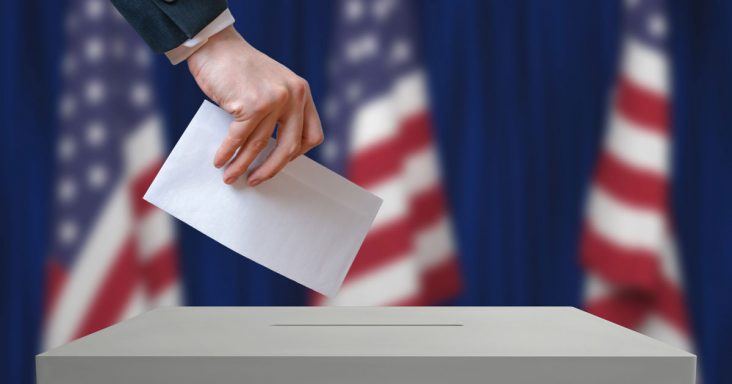Bill advances to increase signature requirements for presidential race
by March 2, 2021 6:16 pm 793 views

A bill that would make it harder to run for president in Arkansas passed the Senate State Agencies and Governmental Affairs Committee Tuesday (March 2), while senators also passed a bill that would limit campaign contributions if a candidate seeks more than one office.
The committee advanced House Bill 1338 by Rep. Robin Lundstrum, R-Elm Springs, which would increase from 1,000 to 5,000 the number of signatures candidates are required to collect to run for president and vice president of the United States in Arkansas. The bill has already passed the House.
Lundstrum filed the bill after Arkansans’ presidential ballots last year had 13 names, which were listed by the luck of the draw. The 11 non-major party candidates between them won less than 3% of the vote. The top vote-getter, Libertarian Jo Jorgensen, won slightly more than 1%. She said the large number of candidates is confusing to voters.
A candidate must collect 10,000 signatures and pay an $11,350 filing fee to run for Arkansas Supreme Court chief justice. Presidential candidates pay no state filing fee, although they do pay party filing fees if they run as a Republican or Democrat.
Andrew Waldron, a representative of the Green Party of Arkansas, spoke against the bill, saying it is unnecessary because of the presidential election’s high profile nature. He said it costs about $3.50 to collect each signature and the requirement would quintuple the party’s budget for the petitioning process.
Meanwhile, the committee approved Senate Bill 384 by Sen. Clarke Tucker, D-Little Rock, which would limit campaign donations to the maximum amount allowed per election regardless of the office or offices a candidate seeks, including if the candidate seeks more than one office.
The bipartisan bill is co-sponsored by Sen. Bob Ballinger, R-Ozark, in the Senate and by Reps. Michelle Gray, R-Bethesda, and DeAnn Vaught, R-Horatio, in the House.
It comes in the same election cycle where Lt. Governor Tim Griffin raised $1.8 million in his race for governor and then announced he would instead run for attorney general after Sarah Huckabee Sanders entered the governor’s race. Griffin said he would offer refunds to his donors.
Tucker said the legislation is not meant to target any present campaign and that it won’t take effect until after the next election cycle in 2022.
He said under current law a candidate is incentivized to run for one office, collect the maximum amount from a donor, spend it all, and then switch races and collect the maximum amount for that race from the same donor.
Committee members also advanced Tucker’s Senate Bill 383, which would amend the campaign contribution limit to coincide with an Ethics Commission calculation based on federal law. The calculation changes every two years. The number rounded up to $2,800 in the most recent election cycle and will increase by rule this upcoming session to $2,900. Tucker’s bill takes the dollar amount out of state law and bases the amount on what the Ethics Commission sets according to the rules.
Sen. Tucker was a guest on Tuesday’s Talk Business & Politics Daily. You can catch his interview below.
